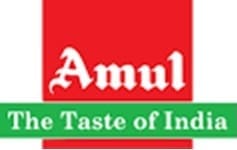
Intensifying geopolitical unrest. Increasing concerns over mass supply chain disruptions. Extreme tariff volatility. It’s a rollercoaster for logistics and supply chain leaders operating in global markets. Add emerging compliance requirements—such as sustainability, transparency, and Environmental, Social, and Governance (ESG) regulations—to the mix and you’ve got an unprecedented, complex global trade environment.
Tariff uncertainty
In an increasingly interconnected global economy, businesses are facing mounting challenges in the wake of recent U.S. moves to raise tariffs on goods from various countries. With companies importing raw materials, components, and finished products, rising tariff rates and customs duties can erode profit margins and disrupt business strategies, especially given the reliance of U.S. businesses (and American consumers) on Chinese imports.
A recent Descartes survey examining the most significant global trade issues facing logistics and supply chain leaders revealed that rising tariffs and trade barriers are their top challenge (48% of respondents)—a shared concern among global companies of all sizes but more pressing for fast-growing organizations.
Businesses are facing greater volatility as tariff changes wreak havoc on supply chains, operational costs, and overall profitability. For business leaders caught up in the trade war vortex, understanding the dynamics of import tariffs and identifying high-level tariff mitigation strategies are critical to staying competitive.
By adopting strategic mitigation techniques—such as tariff engineering, leveraging Free Trade Agreements, participating in duty drawback programs, utilizing Foreign Trade Zones, and embracing trade compliance technology—companies can better safeguard profitability and maintain competitive advantages amidst trade policy unpredictability.
In addition, remaining proactive through supply chain diversification, accurate tariff classification, and strategic supplier negotiations further empowers businesses to adapt to changing trade policies.
Disrupted trade
While the trade war between the U.S. and the rest of the world is dominating headlines, less-hyped supply chain disruptions also pose a significant challenge to the efficient and reliable cross-border movement of goods. Whether natural or man-made disasters, supplier or transportation issues, cyberattacks or regulatory changes, supply chain disruptions are a serious threat to operational efficiency, profit margins, and brand reputation.
Think of the impact of the Covid-19 pandemic, the drought in the Panama Canal, the Russia-Ukraine war, blockage of the Suez Canal, or the 2024 International Longshore and Warehouse Union (ILWU) strike at East and Gulf ports. Given the far-reaching ramifications of these and similar disruptions, it’s no surprise the Descartes survey revealed that 45% of companies engaged in global trade rank supply chain disruptions as their second-greatest challenge, with 62% expecting large-scale disruptions to become commonplace in the foreseeable future.
Geopolitical instability is a major contributor to the disruptions companies are facing in 2025. Despite talk of resolution, the Russia-Ukraine war and the conflict in the Middle East continue to threaten global trade channels. And as tensions between the U.S. and China escalate, businesses are bracing for the fallout, with larger and faster-growing organizations, in particular, identifying geopolitical instability as a major challenge to their global trade operations, according to Descartes’ report.
Tackling disruption with resilience
In the face of political, economic, and environmental disruptions, many businesses are taking practical steps to build greater resilience into their supply chains, assessing vulnerabilities and formulating risk-mitigation contingency plans that can be actualized at short notice. With deep-tier mapping of supply chains, companies can manage upstream supplier risk and downstream buyer exposure while optimizing alternative supplier sourcing and ensuring trade compliance.
As today’s logistics and supply chain leaders focus on creating more agile, responsive supply chains to help overcome unexpected disruptions, many are turning to AI-driven global trade intelligence technology, leveraging predictive analytics and scenario modeling (e.g., digital twins) to visualize and assess the outcomes of different planned responses.
Similarly, AI-powered forecasting tools that analyze vast volumes of real-time and historical data can predict market trends, demand fluctuations, and potential supply chain disruptions, helping companies mitigate risk and buffer the impact of any disruption to the flow of goods.
Shifting compliance sands
The global trade regulatory landscape is also becoming increasingly complex and unpredictable, leaving companies scrambling to stay on top of tariff ups and downs, expanding sanctions and denied party lists (e.g., U.S. Export Administration Regulations (EAR), International Traffic in Arms Regulations (ITAR), Office of Foreign Assets Control (OFAC) sanctions, European Union Consolidated List) and new standards around sustainability and ethical sourcing across all supplier tiers.
ESG regulations are forcing businesses to navigate a challenging regulatory maze, with the Uyghur Forced Labor Prevention Act (UFLPA) in the U.S. and the European Union’s Forced Labor Regulation (FLR) and Corporate Sustainability Responsibility Directive (CSRD), among others, ushering in mandatory compliance and reporting.
Complying with emerging ESG requirements is keeping international organizations on their toes, with mid-size to large organizations notably concerned; 44%-47% of companies with 501 to 50,000 employees view ESG compliance as their number one international trade challenge. While only 27% of small businesses (250 or fewer employees) rank ESG as their primary challenge, they will need to develop a proactive ESG strategy if they plan to scale up their business operations.
The way forward
With the current administration’s tariffs and trade barriers leaving no safe harbor for American importers, businesses are fighting to protect margins and keep goods flowing despite increasingly complex trade regulations, escalating geopolitical conflict, and unpredictable supply chain disruptions.
Despite global trade uncertainty and heightened macroeconomic volatility in the U.S., businesses can better adapt by building supply chain resilience through strategic planning, compliance, and technology. By focusing on operational flexibility, responsiveness, and agility—supported by timely trade intelligence insights and trade compliance technology—logistics and supply chain leaders will be better positioned to navigate global trade challenges and support sustainable growth.
By Jackson Wood, Director of Industry Strategy, Global Trade Intelligence at Descartes.
As Director of Industry Strategy for Descartes’ Global Trade Intelligence business unit, Jackson works collaboratively with Customers, Product Management and Global Commercial Operations partners to help develop and deliver solutions that address the increasing complexity and volatility of today’s global compliance environment.
With a keen focus on both the present and emerging needs of Descartes’ customers, he leverages 20+ years of experience in global trade compliance and risk, customer and market research, strategic planning, change management and corporate development to provide meaningful insights that help increase and amplify the value clients realize from Descartes’ solutions.

















 India’s growth story can continue if it streamlines and effectively manages its supply chain like the iconic dairy brand Amul that recently entered the US market. Amul formed a strategic partnership with the Michigan Milk Producers Association (MMPA) to facilitate its US product launch. MMPA is responsible for the collection and processing of milk, while the Gujarat Cooperative Milk Marketing Federation (GCMMF), which operates Amul, oversees marketing and branding initiatives. Amul’s milk products are currently available in key markets, including New York, New Jersey, Chicago, Washington, Dallas, and throughout Texas. Amul has outlined plans for further expansion into major cities across the US and eventually into additional international markets.
India’s growth story can continue if it streamlines and effectively manages its supply chain like the iconic dairy brand Amul that recently entered the US market. Amul formed a strategic partnership with the Michigan Milk Producers Association (MMPA) to facilitate its US product launch. MMPA is responsible for the collection and processing of milk, while the Gujarat Cooperative Milk Marketing Federation (GCMMF), which operates Amul, oversees marketing and branding initiatives. Amul’s milk products are currently available in key markets, including New York, New Jersey, Chicago, Washington, Dallas, and throughout Texas. Amul has outlined plans for further expansion into major cities across the US and eventually into additional international markets.


